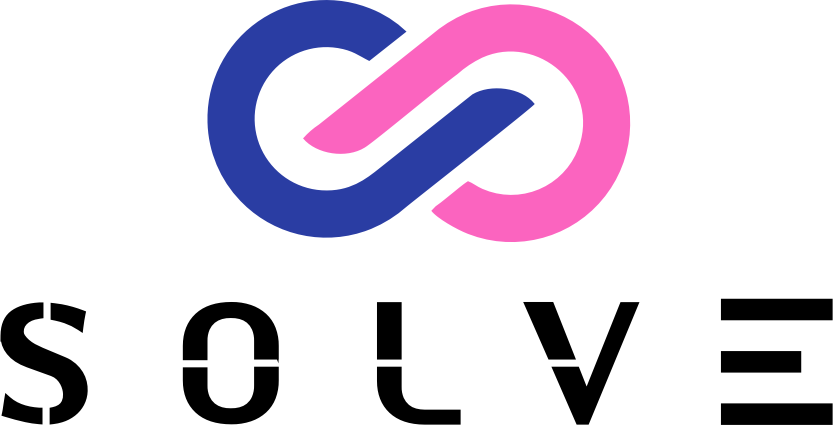- By Vanshika Choudhary
- February 24, 2025
Cybersecurity is a way for consumers to protect their assets, their private information, and their devices during online shopping. E-commerce has its fair share of dishonest tricksters; some of them are going to be the common ones we are going to discuss here:
Phishing is an attack whereby somebody impersonates an institution that would never normally be contacting you: your bank or an institution you trust to be a store.
Identity theft, meaning the misuse of the victim’s private data and information since, on their own behalf, the culprit opens up credit cards and purchases goods in your name.
The aforementioned two cybersecurity suggestions help uphold your principles when shopping online.
Now, things are going to get really down and dirty. So here are a couple of tips you can put to good use for yourself:
Secure Websites
You see a store looking rather shabby, rundown, and shady. I mean, you wouldn’t intentionally leave your stuff there, would you? Well, so it is with the web. You want to make sure that your online shopping is being done safely. Enter HTTPS, URL,, and SSL certificates: Go ahead and check the address of the website from the browser. Did you see the address is starting with ”HTTPS” rather than just HTTP? S means secure. This means that the website has SSL certificates that confirm the site and apply encryption on it to keep your information safe. Encryption is just converting your information into some secret code. If someone intercepts it—they won’t be able to see it.
Lock symbol: In addition, the presence of a small padlock symbol on the address bar is another indicator of a website using encryption and is secure. Be cautious of giving your personal information if the lock symbol doesn’t appear there.
Avoid Using Public Wi-Fi
Public Wi-Fi is a term for internet availability spread across coffee shops, airports, or malls. In light of a clear invitation to get into public Wi-Fi for shopping, the truth is that it is a risky venture. Just think of public Wi-Fi as a party line where everybody can eavesdrop on your conversation. On an unsecured public network, hackers can easily intercept your data.
Risks of Using Public Wi-Fi: Being public implies a lack of security or encryption. That means any hacker could be able to look at everything you’re doing, from the exchanging of passwords and credit card numbers to any other personal information.
VPN Recommendations: VPN stands for Virtual Private Network, which is a secure tunnel solely for your internet traffic. Your data is then protected from any hackers snooping. Using a VPN is like a bodyguard ensuring your online activities are secure! There are a bunch of VPN apps for your phone or computer.
Enable MFA
MFA ( Multi factor Authentication ) is basically a double lock on your door instead of a single lock. When someone enters an unusual location into account, it strengthens security.
Explanation of MFA’s and Advantages: MFA demands more than a password for your login. Usually, the One-Time Passcode (OTP) is sent to your phone, or the system asks for something like fingerprints or a security question. That way, even if someone gets hold of your password, he can still not access your account if he does not have that second piece of information.
Step-by-step enabling MFA on popular platforms:
Most of the major websites and apps now Featuring MFA should be able to service setup.
- Go into your account settings.
- Under Security or Privacy, find the section.
- Then look for the option called two-factor authentication or multi-factor authentication.
- Continue following the prompts for setting up your chosen method (code sent to your phone, authenticator app, etc.).
Be Careful of Phishing Scams
Phishing scams are a huge bane in the digital world for online shopping. By extorting personal information under a trustworthy cover, phishing can be broadly defined. Think of a swindler desperately trying to con you into sharing your secrets, and that is what phishing really is.
Common Phishing Tactics Employed by Cybercriminals
Cybercriminals have become slightly clever with their tactics. They will fake emails and messages that look very much real, mixing logos and branding of companies you trust. For instance, you receive an email request from your bank concerning a problem with your account or a special offer that appears just too good to resist. These messages instill a feeling of urgency, forcing you to act quickly and often thereby avoid rational consideration.
Some of the standard ones include:
- Urgent Alerts: messages that warn you about suspicious activity on your account.
- Fake Offers: emails that promise unbelievable discounts or rewards.
- Impersonation: Scammers posing as customer service representatives from well-known companies.
Signs to Consider to Recognize and Avoid Phishing Attempts
The following tips are handy in preventing phishing scams:
- Check the Sender’s Address: Always especially scrutinize the email. Phishing often comes from an email address that is slightly different from the original. For example, instead of “support@yourbank.com,” it might say “support@yourbank123.com.”
- Beware of Grammar and Spelling Mistakes: The writing in many phishing emails will be poor with grammatical errors or awkward. Legitimate companies communicate professionally.
- Do Not Click On Links That Look Suspicious: Hover your cursor over the link before clicking any link on the email and see where it really goes. Avoid clicking on it if the destination looks dubious or does not match the company’s website.
- Do Not Share Personal Information With Anyone via Email: Legitimate companies will generally not ask for sensitive information on email, either passwords or credit card numbers. If you are being asked outright, then it is a scam.
- Go to the Website: If you have doubts whether the email is real, enter the company website address into your browser instead of clicking the links on the email. Check for alerts or messages in your account.
- Use Strong Passwords: Your password is your first line of defense against hackers. Think of it like a key to your house; if it’s weak or easily guessable, your front door is wide open.
Guidelines for Creating Strong, Unique Passwords
Strong password usage is essential to keeping your accounts safe. Here are some guidelines to use:
- Make it Long: Try making it at least 12 characters long. The longer a password is, the harder it is for someone to crack it.
- Mix it Up: Capital letters, lowercase letters, numbers, and symbols such as @, #, $, etc., should all be included. The mixture makes your password a lot tougher.
- No Personal Information: Never put in information that’s easy to guess; birth dates, birthday, your name, nick name of your pet, etc. Hackers would be able to find this info on sites like Facebook.
- Never Use the Same Password for Several Accounts: If one of your accounts is broken into, any others using the same password could also be jeopardized.
Benefits of Using a Password Manager
A password manager is a very helpful support system that secures all your passwords collectively in one database. It will also generate strong, random passwords on your behalf, meaning you no longer have the worry of trying to recall all the passwords. Instead, you only need to remember one master password to get everything else. In this way, you can use unique passwords for each account without memorizing them.
Monitor Your Financial Statements
Constantly observing your bank and credit card statements is key to detecting unauthorized transactions early on.
The importance of Regularly Checking Bank Statements
By checking your bank statements at consistent intervals, you’re taking care of the booking of unexpected charges or transactions you do not recognize. Even a small unauthorized charge can be a sign of fraud and should be investigated right away.
Steps to Take if Unauthorized Transactions are Found
When you see the suspicious activity:
Immediate Reporting: If you notice any unauthorized transaction, contact the banks or credit card providers.
Change Your Passwords: Change online banking and shopping accounts’ passwords after reporting the fraud.
Monitor Your Credit Report: Keep an eye on your credit report from time to time.
Keep Software Updated
Software updates are important to securing your devices.
The importance of Updating Operating Systems, Browsers, and Security Software
Old software can create weaknesses, which hackers can use to obtain your information or access your devices. Regular updates will fix vulnerabilities while also improving performance.
How Updates Protect Against Vulnerabilities
Updates (or patches) are what the software developers release to repair security vulnerabilities that are discovered in their software. By keeping it all updated—the operating systems, browsers, and security software—you’ll be better protected from any threats.
Use Credit Cards or Secure Payment Methods
Generally, credit card use is safer than debit cards for online shopping.
Advantages of Credit Cards Over Debit Cards for Online Purchases
- Credit cards usually offer even greater protection from fraud than debit cards in that they allow you a lot more room to challenge unauthorized charges.
- When there is fraud on your credit card, you will normally not be liable for those charges as long as you report it within a certain time.
- All debit cards can have money taken from your account, however, and when that happens, recovering money that you lost can become complicated.
Brief Overview of UAE Regulations Concerning Data Privacy and Protection
Such legislation regulates the way companies collect, use, and store personal information regarding an individual. These laws ensure that organizations handling consumer data are transparent and accountable regarding what they will do with his data.
Importance of the Law-in-Business to Consumers and Companies
As a consumer in the UAE, it is very important to understand the rights you have with regard to data privacy to be able to protect yourself effectively. For businesses in the UAE, compliance with these laws would go a long way in building trust with customers while reducing the possible legal quagmire a few years down the road.
Conclusion
An awareness of phishing scams plus active measures can go far in enriching your online shopping experience while keeping you safe from cyber threats. Strong passwords, regular checking of monetary statements, updates of the software, secure methods for payment such as credit cards or PayPal, and a reasonable understanding of data protection laws in the UAE are good ways to safely shop online, knowing that you did your best to guard against fraudsters contact us for better guidance.




